8 Hydration Hacks for Older Adults: Stay Refreshed and Thriving
Contents
- 1 8 Hydration Hacks for Older Adults: Stay Refreshed and Thriving
- 1.1 Introduction:
- 1.2 8 Hydration Hacks for Older Adults
- 1.2.1 Understanding the Importance of Hydration:
- 1.2.2 1. Sip Water Regularly Throughout the Day:
- 1.2.3 2. Infuse Your Water with Flavor:
- 1.2.4 3. Opt for Hydrating Foods:
- 1.2.5 4. Set Hydration Reminders:
- 1.2.6 5. Monitor Urine Color:
- 1.2.7 6. Time Your Hydration:
- 1.2.8 7. Carry Hydration Snacks:
- 1.2.9 8. Create Hydration Stations:
- 1.3 Expert Tips for Effective Hydration
- 1.4 FAQs
- 1.5 Conclusion:
Read DISCLAIMER
Unlock the secrets of senior hydration with 8 expert-backed hacks. Discover strategies for staying refreshed and thriving as you embrace the wisdom of age
Introduction:
Staying adequately hydrated is even more important as we age to preserve our general health and vigor. Dehydration can cause a number of health problems, such as weariness, vertigo, and diminished cognitive ability. This thorough tutorial will cover 8 “Hydration Hacks for Older Adults” that will keep your body refilled from the inside out. Let’s take a closer look at these tactics supported by experts to make sure you’re drinking your way to a better, happier existence.
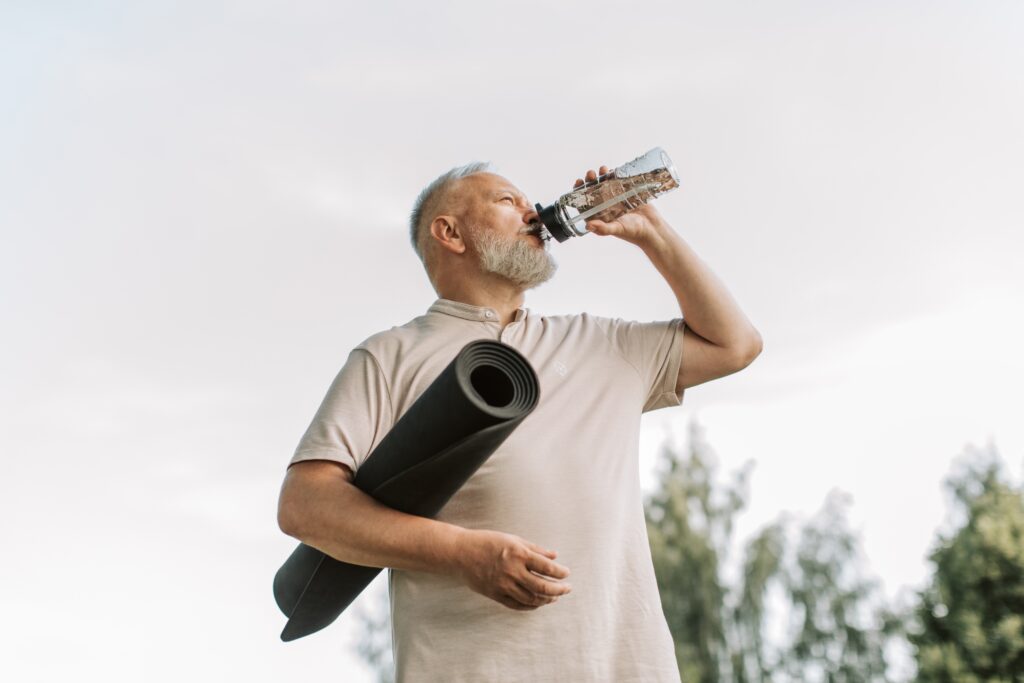
8 Hydration Hacks for Older Adults
Understanding the Importance of Hydration:
It’s important to comprehend why hydration matters before diving into the hacks. Digestion, circulation, and temperature control are just a few of the body activities that are supported by adequate hydration. Maintaining hydrated is especially important for older folks because as we become older, our bodies become less sensitive to thirst. Let’s now look at some tips for incorporating hydration into your everyday routine.
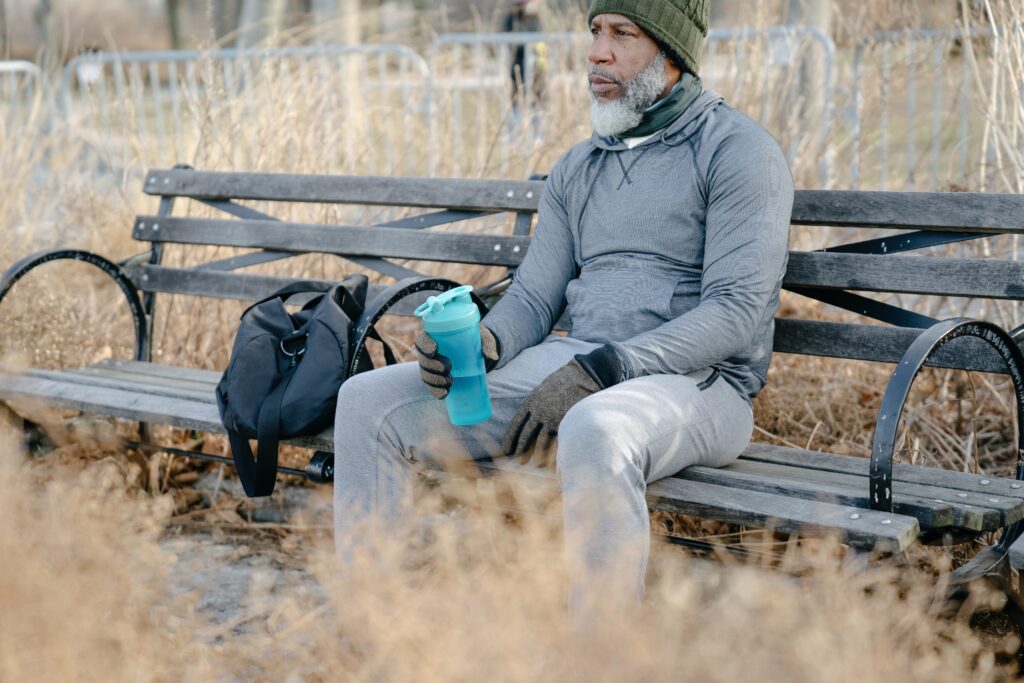
1. Sip Water Regularly Throughout the Day:
Sip lesser amounts of water throughout the day as opposed to sticking to one or two large glasses every day. Keep a reusable water bottle close by and sip from it sometimes, even if you don’t feel thirsty. With a regular strategy, dehydration may be avoided without feeling overburdened by excessive fluid consumption.
2. Infuse Your Water with Flavor:
Add natural tastes to plain water if it feels bland. To give your water a refreshing touch, add slices of citrus fruits, berries, or herbs like mint. These alternatives for flavored water might make staying hydrated more pleasurable and motivate you to drink more often.
3. Opt for Hydrating Foods:
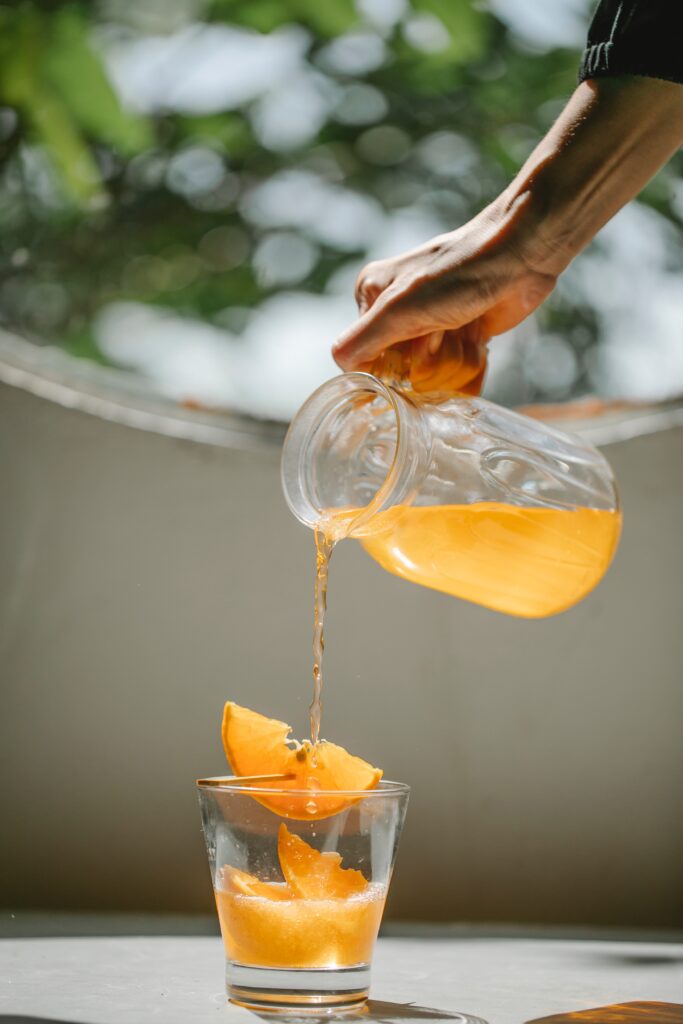
Drinks aren’t the only way to stay hydrated. Include items high in water in your diet, such as cucumbers, melons, oranges, and leafy greens. These meals supply important vitamins and minerals while also helping you meet your daily hydration requirements.
4. Set Hydration Reminders:
It’s simple to forget to drink water during a hectic day. Set recurring reminders to stay hydrated using your phone or smartwatch. Take a few drinks as soon as your alarm goes off to make sure you stay hydrated all day.
5. Monitor Urine Color:
Examining the color of your urine is one of the simplest methods to determine your state of hydration. Dark yellow or amber may be signs of dehydration whereas pale yellow suggests adequate hydration. For a sign of appropriate fluid intake, aim for a pale yellow tint.
6. Time Your Hydration:
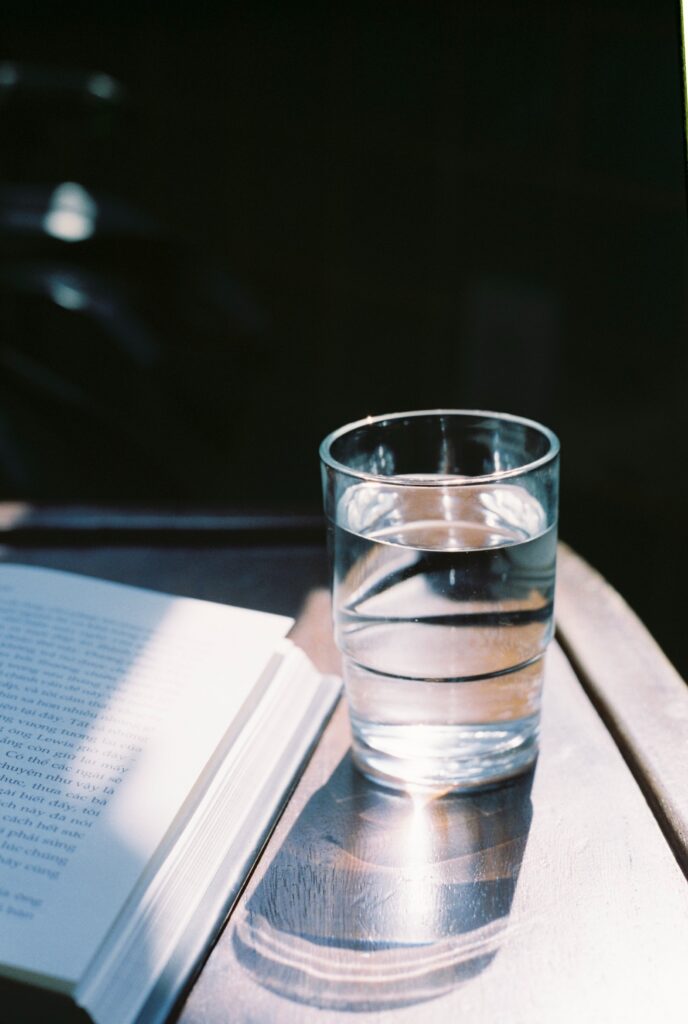
Keep an eye on your hydration consumption at certain times. Drink water to help with digestion before meals, during and after physical activity, in the morning and at night. You may stay hydrated with the aid of this practice without feeling overburdened.
7. Carry Hydration Snacks:
Always have hydrated foods on available, like yogurt, juicy fruits, and hydrating liquids like herbal tea. Staying hydrated is made simpler by these practical solutions, especially if you’re on the road.
8. Create Hydration Stations:
Put water dispensers or pitchers in locations around your house that are simple to reach. You may use hydration stations as visual cues to remember to sip frequently by placing them in your living room, kitchen, and bedroom.
Expert Tips for Effective Hydration
Listen to Your Body: Don’t depend entirely on a certain amount of water. When you feel thirsty, pay attention to your body’s cues and take a drink.
Avoid drinking too much alcohol and caffeine: Alcohol and coffee both lead to dehydration. If you eat them, be sure to drink enough water to counteract them.
Add Electrolytes: Our body’s capacity to hold onto electrolytes declines with aging. Think about hydrating drinks with electrolytes added, or try coconut water for a more natural option.
Maintain Hydration in Severe Weather: If it’s hot or chilly outside, change how much liquids you’re consuming. In order to keep hydrated in warm weather, you’ll probably need to drink more water, and in cold weather, dry indoor air can also cause dehydration.
FAQs
How much water should an older adult drink each day?
The recommended amount of water per day is 8 cups (64 ounces), however individual needs may differ depending on things like activity level and health state.
Why is it crucial for older persons to maintain proper hydration?
Maintaining hydration maintains healthy physical functioning, enhances cognitive function, and guards against symptoms like exhaustion and dizziness.
Can I get all of my fluid consumption from hydrating foods?
While hydrating meals are advantageous, you shouldn’t use them in place of water. Drinks are necessary for adequate hydration since they offer a more dependable and direct supply of fluids.
Is it possible to drink too much water?
Overhydration is an uncommon but possible condition. It’s better to pay attention to your body and refrain from consuming more fluids than you actually require.
Should I just drink when I’m thirsty?
Older persons may not always feel thirsty even when they are dehydrated, despite the fact that thirst is a reliable predictor of water needs. It is advised to create a schedule for regular sips.
Can I drink any kind of liquid to keep hydrated?
The greatest liquid for hydration is water, but other drinks including herbal tea, diluted fruit juices, and coconut water can also help you drink more fluids.
Can elderly people’ cognitive performance be impacted by dehydration?
Yes, dehydration can affect cognitive function, making it harder to concentrate and remember things. Drinking enough of water can benefit brain health.
Are elderly persons at risk of overhydration?
Overhydration is uncommon but conceivable. It’s crucial to pay attention to your body and avoid imposing an excessive fluid intake.
Does hydration depend on the beverage?
Herbal tea, diluted fruit juices, and coconut water can also help with fluid intake, however water is still the best option.
Can elderly persons’ cognitive function be impacted by dehydration?
Yes, dehydration can cause cognitive problems including poor memory and attention.
Can I create alerts to remind me to drink water?
Yes, you can keep a regular fluid intake by setting hydration reminders on your phone or smartwatch.
Do electrolytes play a role in hydration?
A lot more so as we become older. Electrolytes can be added through hydrating drinks or natural sources like coconut water.
Can harsh weather have an impact on hydration requirements?
Yes, you may require extra fluids in hot weather, and in cold weather, dry indoor air can also cause dehydration.
Conclusion:
The key to good health, especially as we age, is proper hydration. You may maintain ideal hydration levels and benefit from all that it has to offer by including these 8 Hydration Hacks for Older Adults into your daily routine. You’ll be prepared to live life to the fullest, one revitalizing drink at a time, by adhering to these tactics supported by industry professionals.
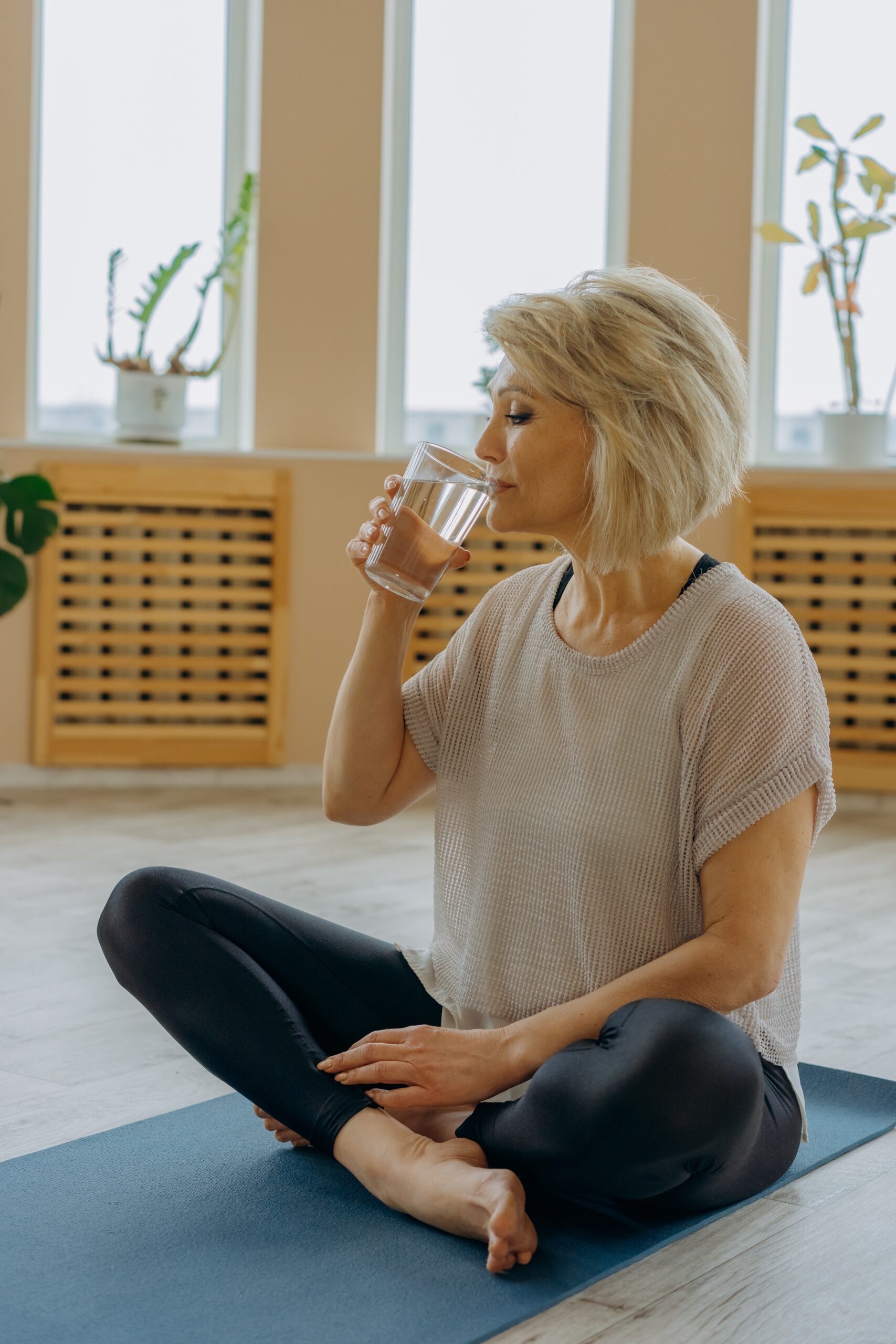
Thanks for sharing. I read many of your blog posts, cool, your blog is very good.
Thanks for sharing. I read many of your blog posts, cool, your blog is very good.
Can you be more specific about the content of your article? After reading it, I still have some doubts. Hope you can help me.
Can you be more specific about the content of your article? After reading it, I still have some doubts. Hope you can help me.
I don’t think the title of your article matches the content lol. Just kidding, mainly because I had some doubts after reading the article.
Can you be more specific about the content of your article? After reading it, I still have some doubts. Hope you can help me. https://accounts.binance.info/sv/register-person?ref=GQ1JXNRE
**mitolyn official**
Mitolyn is a carefully developed, plant-based formula created to help support metabolic efficiency and encourage healthy, lasting weight management.
Thank you for your sharing. I am worried that I lack creative ideas. It is your article that makes me full of hope. Thank you. But, I have a question, can you help me?
I don’t think the title of your article matches the content lol. Just kidding, mainly because I had some doubts after reading the article.
Thanks for sharing. I read many of your blog posts, cool, your blog is very good.